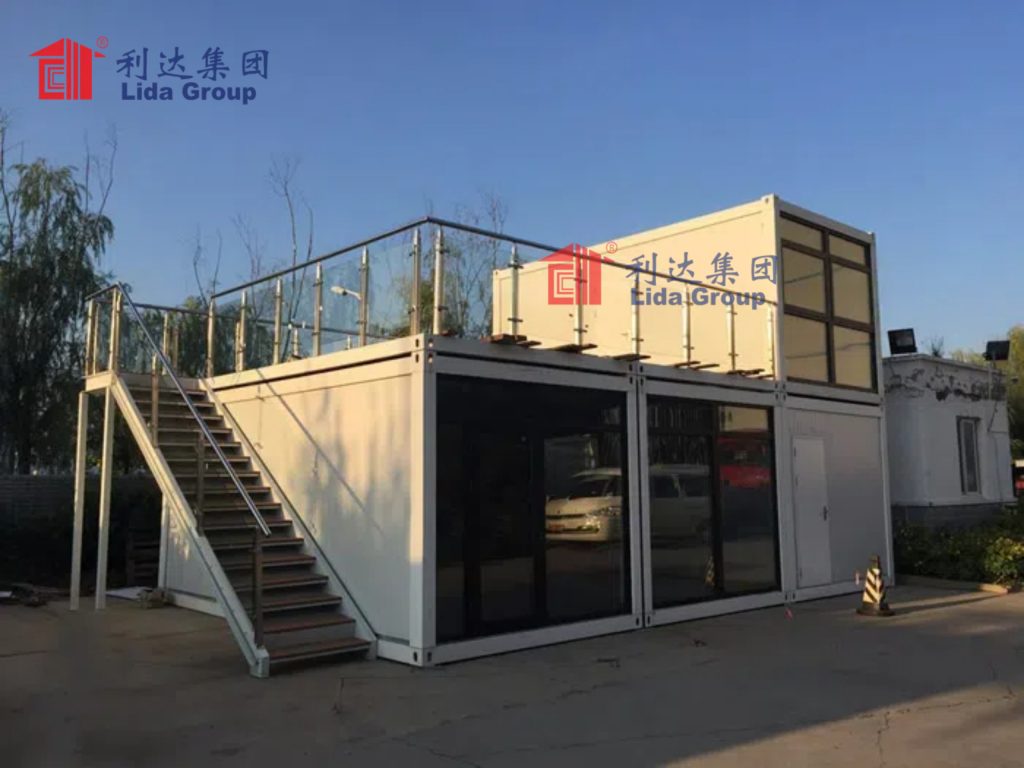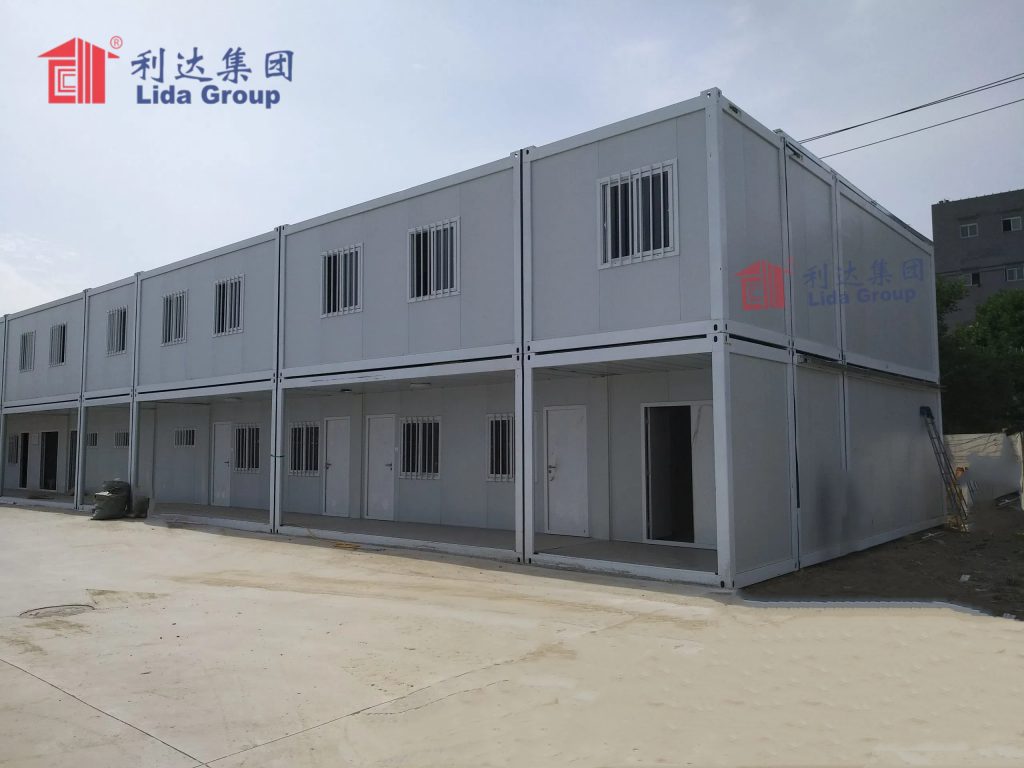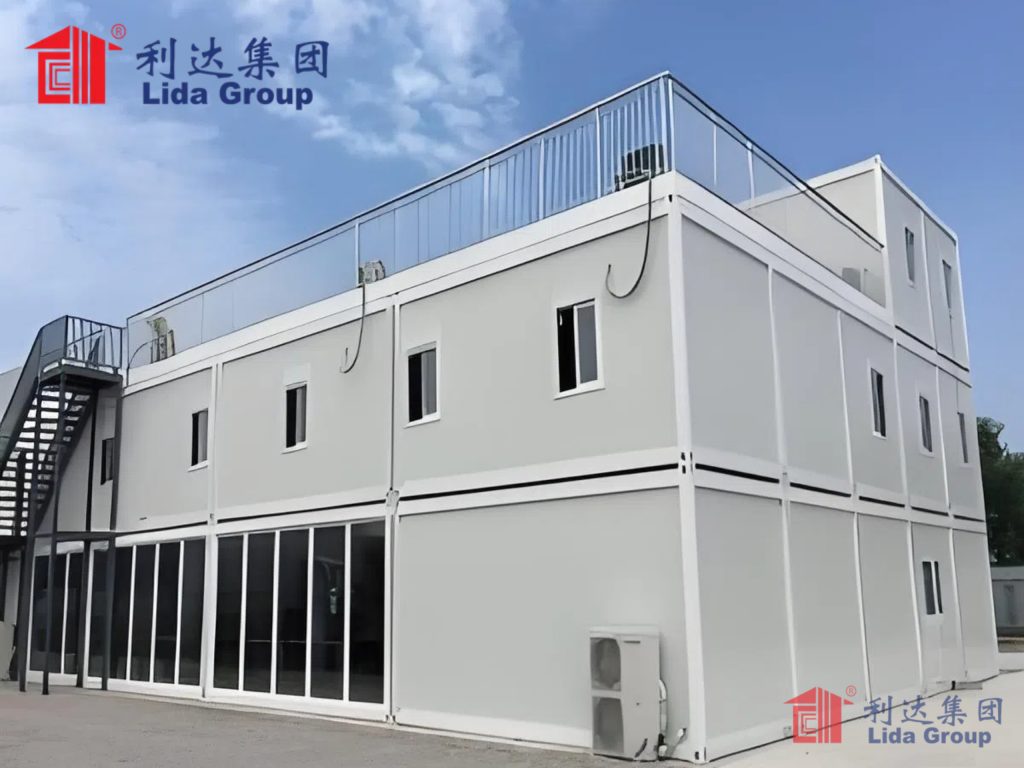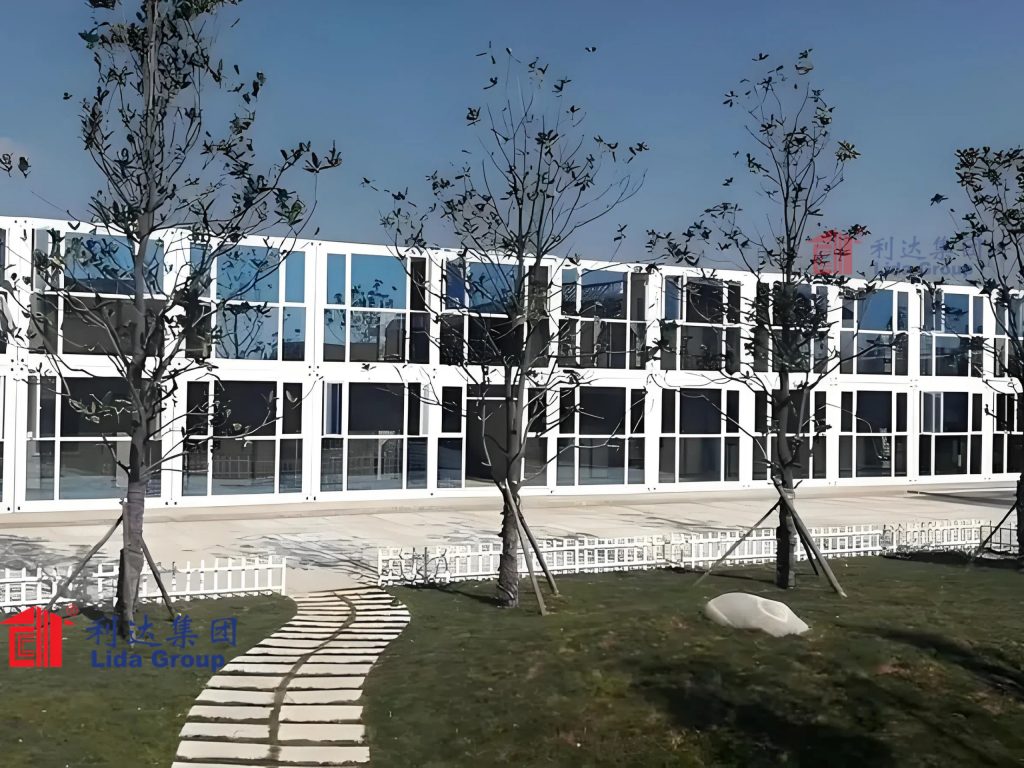On a warm summer afternoon in July, an earthquake registering 7.1 on the Richter scale struck a densely populated region of central China. Within seconds, the powerful tremors brought down crumbling buildings and infrastructure across several major cities and rural towns. Tens of thousands were left homeless as the scale of the destruction became apparent in the aftermath. With harsh winter weather approaching, emergency responders faced the immense challenge of finding safe temporary shelter for disaster victims before the freezing temperatures set in.
The international aid organization Global Aid rushed to assemble an emergency response team to deploy to the quake zone. Knowing the urgent need for shelter, their first priority was to identify housing solutions that could be rapidly built and transported into the affected areas. As the team coordinated logistics and procurement, a start-up company called Lida Group approached Global Aid with an innovative prototype that might help address the shelter crisis.
Lida Group specializes in designing and constructing prefabricated buildings using recycled shipping containers as the primary building material. Through their research and development efforts, they had developed a new type of temporary shelter made from modified shipping containers that could be quickly assembled on site with minimal workforce and equipment. The prototypes featured insulated exterior walls, added interior finishes, and modular connections allowing multiple units to be linked together. Most significantly, a single container unit provided enough floor space to house an entire family.

Global Aid was impressed by Lida Group’s concept and the potential for scaling up production rapidly using their established shipping container fabrication facilities. With winter closing in and shelter needs escalating by the day, time was of the essence. After assessing construction details and liveability standards, Global Aid gave the green light to partner with Lida Group on a pilot deployment of the portable prefab shelters. The project would help validate Lida Group’s innovative design approach while providing urgently needed housing for quake victims left without homes as temperatures dropped. Both organizations saw it as an opportunity to fill a critical gap through technology and collaboration.
Over the next four weeks, Lida Group pulled out all the stops to manufacture and deliver prototype shelters to the earthquake zone. By retrofitting and modifying standard 40-foot shipping containers, their skilled welders and technicians were able to produce complete prefab housing units at a rate of 20 per day within their large-scale production facilities. Each container home consisted of insulated exterior walls, flooring, windows, and an interior layout optimized for space. Modular connection systems allowed multi-container shelters to be quickly configured on site.
As the container homes rolled off the assembly line, flatbed trucks transported them non-stop to staging areas near the hardest hit cities. There, Global Aid’s deployment team coordinated the logistics of offloading and assembling the shelters. Though initially designed as a simple container modification, the prefab design proved highly transportable and quick to assemble without heavy equipment. Within two weeks, over 200 shelters had been delivered and constructed – providing covered, insulated living space where before there was only rubble and debris.

Families returning to survey the destruction of their former neighborhoods found a glimmer of hope in the rows of temporary container homes now established on cleared plots of land. Well-organized community kitchens and sanitation facilities supported the new makeshift settlements. The prefab shelters offered sturdy walls and roofs to shield residents from the elements as autumn arrived, a vast improvement over flimsy emergency tents. Though modest in size, each modular container provided private living quarters for extended families and gave people a place to stay rather than living in camps or on the street through the winter months.
As villages and families settled into their new living situations, observers took note of how efficiently Lida Group’s innovative shelter design was performing under real crisis conditions. While traditional refugee camps can take far longer to establish, with the container housing it took less than a month from procurement to full habitation across multiple communities. The modular, connectable design allowed for flexibility in shelter layouts to accommodate different family sizes or future expansions. Residents also commented on how the insulated walls kept interior temperatures moderate despite cooler outdoor weather.
For Global Aid, the pilot deployment was proving the portable prefab shelters to be a highly scalable and effective immediate response solution. By leveraging readily available building materials like shipping containers, entire communities could be rapidly rehoused after catastrophic events when traditional construction would take far too long. The success of the joint program to shelter earthquake victims was already gaining attention from other humanitarian organizations and disaster response groups looking for proven housing options made for swift deployment.

Over the following months, as recovery and rebuilding efforts continued, the prefab shelters provided reliable, covered living spaces. Families were able to cook, sleep and carry out daily activities safely within the stable walls while their permanent homes could be repaired or reconstructed. Communities utilized the shared facilities and layout of the temporary neighborhoods to maintain social networks disrupted by the disaster. This helped soothe trauma and boost mental wellbeing at a vulnerable time. Meanwhile, Lida Group’s technical representatives monitored unit performance through inspections and resident feedback sessions to refine details for the next generation of portable prefab shelters.
By late fall, the first wave of permanent new homes and repaired structures were ready for occupancy, allowing the modular container shelters to gradually be demobilized and redeployed where needed for other crises. Through the partnership between Lida Group and Global Aid, over 250 family-sized prefabricated housing units had been constructed, transported and inhabited within 8 weeks of the earthquake – providing critical interim shelter for thousands left homeless. As winter set in, not a single resident remained unsheltered thanks to the rapid mobilization of this innovative portable housing solution.
As the winter weather brought heavier snow and colder temperatures, emergency responders could breathe a sigh of relief knowing every victim had found safe covered housing. The communities were well on their way to recovery with basic needs met and social networks reestablished. Most remarkably, it demonstrated what could be accomplished through nimble collaboration between technologists, manufacturers and humanitarian organizations – bringing proven housing prototypes from design to full-scale implementation on an expedited timeline.

One year later, Global Aid looks back with pride on their successful deployment of Lida Group’s prototype prefabricated shelters after the earthquake. It validated an approach with tremendous potential to rapidly and affordably rehouse disaster victims on a large scale anywhere in the world. The portable modular housing concept pioneered through that pilot program has since evolved into a catalogue of field-tested designs optimized for various terrains and climate zones.
Lida Group now has production facilities on three continents to fabricate and distribute prefab shelters globally within 72 hours of procurement. Their container home units and community layout blueprints have protected tens of thousands from the elements after cyclones, floods, wildfires and other humanitarian disasters. Feedback from residents and community partners continues to drive constant design improvements towards more resilient, dignified and customizable temporary housing. Most importantly, the lives saved and suffering reduced can be directly attributed to partnerships that facilitate rapid innovation and scaled implementation when it matters most.
In closing, challenges of providing adequate shelter remain one of the greatest hurdles in humanitarian aid and disaster response. Through pioneering work like Lida Group’s portable prefab housing solution, new models are emerging to rehouse communities faster and more affordably than traditional building methods. By leveraging manufacturing capacity and logistics systems already in place, entire settlements of resilient temporary shelters can be established within weeks rather than months after catastrophic events. This gives disaster victims safe covered living spaces sooner while permanent rebuilding occurs, protecting health, dignity and social recovery when communities are most vulnerable. Continued collaboration between technology pioneers, manufacturers, and aid organizations will surely lead to even greaterShelters that save lives.

Related news
-
White paper assesses the quality, cost-effectiveness and replicability of interim shelters produced by Lida Group using lightweight steel frames, foundation systems and proprietary composite wall panel connections.
2024-08-08 17:53:29
-
Report analyzes pilots of Lida Group's panelized prefab models supporting shifting communities through scalable housing, classrooms and clinics that can be rapidly assembled and transported as needed.
2024-08-09 11:54:10
-
Journal highlights growing partnerships enabling localized manufacturing and customization of sandwich panel modules compatible with Lida Group's pre-engineered movable building system designs.
2024-08-08 16:56:34
contact us
- Tel: +86-532-88966982
- Whatsapp: +86-13793209022
- E-mail: sales@lidajituan.com


